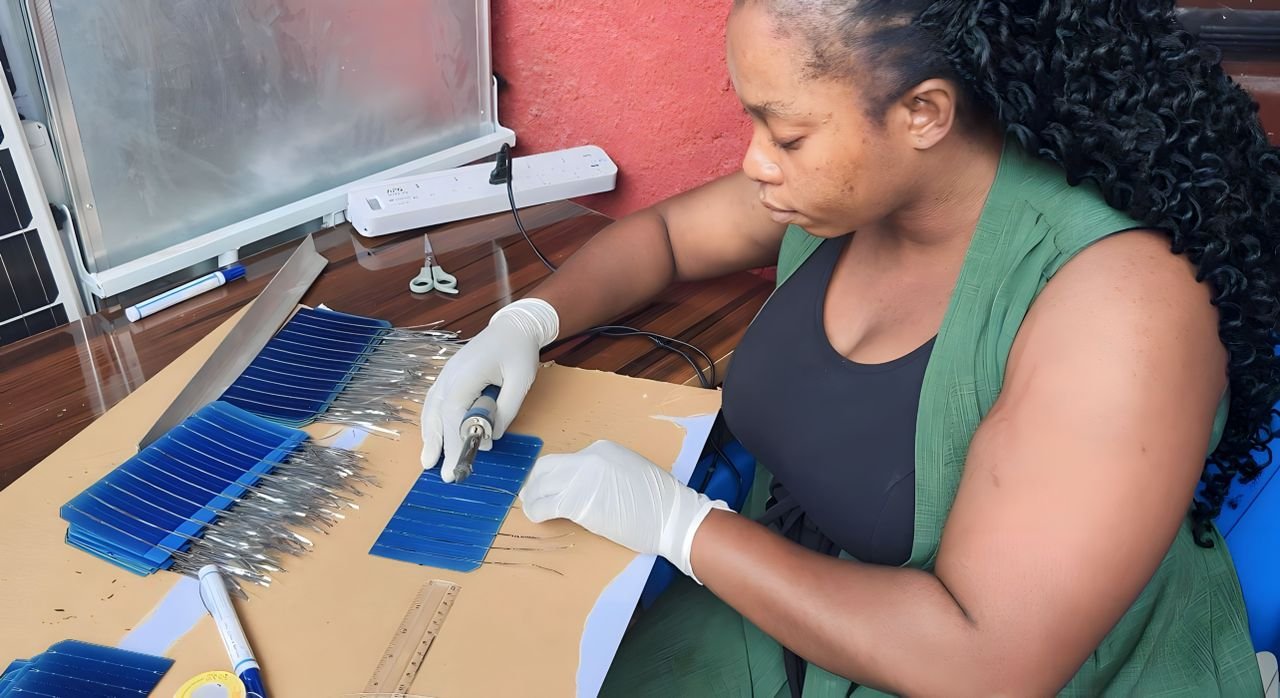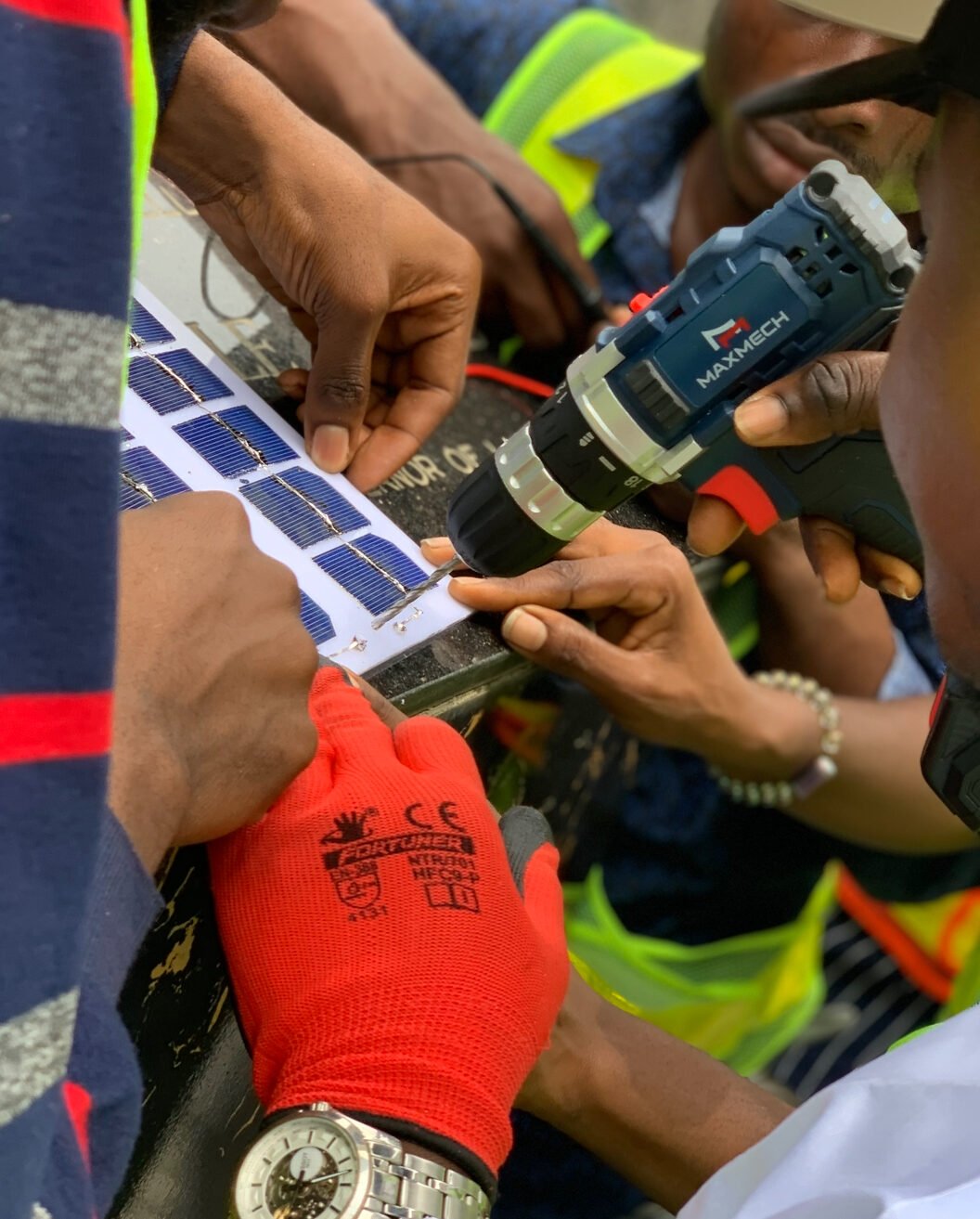I recently held an audio event discussing the challenges and opportunities with locally manufacturing of renewable energy technology in Africa. It was an engaging conversation with 44 registered attendees and 14 active participants, all passionate about Africa’s energy future. Participants came from 6 African countries with Kenya, Nigeria and Ghana mostly represented.
Renewable energy presents a critical opportunity for Africa, not just in terms of mitigating climate change, but as a driver for economic growth and development. By harnessing clean technology manufacturing, Africa can create new revenue streams and employment opportunities across various value chains. However, we also acknowledged the challenges, particularly in areas like unclear policies, inconsistent regulations, and an often tough business environment.
During the event, we discussed four key opportunities and four major challenges that I’ll elaborate on in a follow-up post. Today, though, I’d like to highlight some thought-provoking contributions from both experienced professionals in the energy sector and young people who are deeply involved in renewable energy innovation.
These voices shed light on the ways Africa can strengthen its position in the global renewable energy transition.
1. The Importance of Education and Local Manufacturing
Engr Joseph made a crucial point about the lack of widespread education on renewable energy in Africa. He emphasized that for Africa to fully embrace renewable energy, there needs to be a concerted effort to educate the masses on its benefits and the importance of local manufacturing. He stated that without a solid foundation of knowledge, we will continue to rely on foreign expertise and technology. I couldn’t agree more. As one of my mentors, Nobel laureate Joseph Stiglitz, recently said in his book, “People, Power, and Profits”, “Education is one of the most powerful tools to unlock human potential.” This is why we are so committed at RETTI to training the next generation of African energy leaders—not just in renewable energy design and installation, but also in solar PV production and assembly.
2. The Role of Universities and Local Faith
Joseph also highlighted the importance of involving African universities in the renewable energy conversation. Our universities must become hubs of research, innovation, and development for clean energy technologies. This is not just about waiting for foreign investors to solve our problems. We need to place faith in ourselves—our people and our institutions—to lead the way.
3. Questioning Fossil Fuel Management
Sam Edem raised an important question about Nigeria’s vast fossil fuel resources and why they haven’t been utilized more effectively. He asked why, despite decades of oil and gas production, we are still flaring gas and missing out on the economic potential of these resources. He also mentioned the Nigerian government’s recent dollar bond initiative to address forex scarcity and suggested that a similar approach could be applied to raise funds specifically for renewable energy manufacturing. Sam’s point underscores the need for decisive leadership and innovation beyond government intervention. The private sector, civil society, and communities also have a role to play in driving the clean energy transition.

4. Lack of Visibility for Youth Innovators
Fowedlung raised a powerful point about the innovations coming from young African entrepreneurs in the clean energy space. He noted that despite the creativity and passion of these young innovators, many of their ideas and products remain invisible to the larger market. “Are African innovations being overlooked?” he asked, calling for intentional action to shine a spotlight on African solutions. I completely agree, and this is exactly why we create platforms like this LinkedIn audio event and initiatives such as the Climate Leadership Fellowship and Africa Fellowship for Young Energy Leaders (AFYEL). These platforms provide opportunities for young African innovators to showcase their work, gain recognition, and access capacity-building opportunities.
A Call to Action
The conversation we had was insightful and inspiring, with key contributions from African youth that cannot be overlooked.
The conversation during this event was just the beginning, and I am grateful to everyone who participated. We explored critical questions, shared valuable insights, and reaffirmed the importance of local action in Africa’s renewable energy journey. Stay tuned, as I’ll be sharing more insights and expanding on the key takeaways from the session in the coming days.
It’s clear from these points that the future of Africa’s energy sector hinges on educating our people, involving our institutions, holding leaders accountable, and amplifying local innovations. At the Renewable Energy Technology Training Institute (RETTI) we are committed to addressing these challenges by creating platforms for young people to showcase their ideas, develop their skills, and lead the renewable energy transition.
But the question remains: How do we ensure that Africa becomes a global leader in clean energy manufacturing and not just a consumer of foreign technologies? I look forward to hearing your thoughts.
ABOUT THE AUTHOR

Glory Oguegbu is an Obama Scholar, an award winning climate specialist, energy transition entrepreneur and author dedicated to promoting access to electricity through clean and renewable energy whilst preserving the planet at the same time. She’s the founder and CEO of the Renewable Energy Technology Training Institute (RETTI) and the RETTI Virtual University for Energy Education which is investing in workforce development for the transition to sustainable access to clean electricity, ultimately to benefit 600 million Africans and 87 million Nigerians who are living without access to electricity. Her company RETTI has since trained 3000+ engineers and has worked with them to provide
solar electricity for 25, 000 homes and businesses across Nigeria.
RETTI’s CSR initiative, the Africa Fellowship for Young Energy Leaders is investing in the skills of young engineers across four main
renewable energy technologies – Hydropower, Offshore wind, Solar Power and Bioenergy. Currently in its fourht cohort, the six months’ program has invested into 210 engineers from 35 African countries.
To promote local manufacturing and accelerate electricity, Glory has recently created the RETTI Energy Innovations Company whose flagship project – the RETTI Solar Panel Factory is working to support the local creation of solar panels and other renewable energy technology creating massive jobs, improving electricity access and reducing Nigeria’s dependence on Chinese technology.
As an accomplished author, she has written five books focusing on climate and energy transition tailored to African contexts, a move she made after she didn’t find books relating to African contexts to engage students, her books were key in creating Africa’s first contextualized climate education toolkits which has reached 60, 000 students and 123, 000 community members. Fueled by a passion for bridging the gap in Climate knowledge, Glory through her non-profit established the Climate Leadership Fellowship to give select Nigerian youths the tools they need to combat local climate change impacts and build collective national climate resilience. In partnership with Access bank,
Nigeria, the program has welcomed 200 fellows in six cohorts who are from the six geo-political zones of Nigeria.

